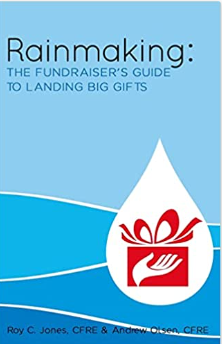Intro
Welcome to the Fit Fundraising podcast, where we bring you game changing fundraising topics direct from our meetings with major donors and nonprofits nationwide. We don’t interview consultants who haven’t met a donor in decades for fundraising stays on the front lines with nonprofit donors and leaders. This podcast is a glimpse into our work with nonprofits as we get on the field of them and successfully modeled fundraising.
Roy Jones:
Hi, I’m Roy Jones, and welcome to the Fit Fundraising Podcast. We’ve got an exciting episode for you today as we continue to meet young, driven, and innovative leaders who are shaping the future of fundraising and development across the country.
Today, we’ve got a special guest — my friend Jordan Smith, Executive Chief Development Officer at Tree of Life Ministries in Purcellville, Virginia, just west of Washington, D.C. Jordan has an amazing background and is one of the young, truly entrepreneurial leaders in nonprofit development. We’re so excited to have him.
He’s got experience in sales, marketing, IT, and extensive volunteer work with numerous organizations. His work, experience, and yes — even his age — are remarkable to me. To see a 35-year-old doing such incredible things in fundraising and development, as an old Boomer myself, is inspiring. Welcome to the show, Jordan.
Jordan Smith:
Thanks, Roy. It’s great to see you. Thank you for having me.
Roy Jones:
I’m so glad you’re here. Take a moment, if you would, to tell us about Tree of Life — your ministry, your work, and what’s happening in Purcellville. I know there’s even expansion overseas with your dad’s involvement in England.
Jordan Smith:
Absolutely. So, as you mentioned, we’re about an hour outside of Washington, D.C., which creates a unique setting. Tree of Life is located in one of the wealthiest counties in America, which means the need here looks different — often hidden. But there’s still need. The bottom line is that everyone needs a Savior.
Our mission is to identify ways to connect with people and families in our community so we can lead them toward that truth. As Jesus taught us, meeting basic needs often opens the door for deeper conversations.
We serve through a five-branch framework: Food, Life Skills, Healthcare, Shelter, and Relief. From those five branches, we currently operate about 23 active ministries across Loudoun County. We have two centers, each with a dedicated food pantry, and we partner with around 40 churches. Each year, about 600 volunteers and 700 donors join us in this work.
The ministry began in 2008 when my dad, after returning from Hurricane Katrina relief work, shared a story with his church. He had met a woman named Ellen who had lost everything. She asked for a Bible, and when he went to get one, he found himself standing next to President George W. Bush. Together, they gave Ellen the Bible — and then Ellen asked if she could pray for them.
That moment profoundly affected my dad. On his drive home, he told God he wanted to serve where the need was. God’s response was clear: “You’re exactly where you’re supposed to be — there is need right where you are.”
Back at his church, my dad proposed that they give 10% of their budget to help people in need locally — and this was in 2008, during the financial crisis. One by one, the elders agreed. That decision birthed Tree of Life Ministries.
Roy Jones:
That’s incredible. How many churches are involved now?
Jordan Smith:
Just over 40 — I believe the current number is 48.
Roy Jones:
Fantastic. And how many people are you serving?
Jordan Smith:
Last year, we had around 26,000 individual impacts — with about 600 volunteers and 700 donors contributing to that.
Roy Jones:
That’s amazing. Let’s get into our main topic today — the differences between generations in giving and volunteering. With your experience, what generational differences do you see among your volunteers and donors?
I’m a Boomer myself — this gray beard proves it. You’re 35, so I guess that puts you somewhere on the line between Millennials and Gen X. How do you see age affecting your work and ministry?
Jordan Smith:
You’re right, I’m kind of on the bubble between the two. That gives me a unique perspective — I can relate to both generations.
When I came into this role six years ago, I was only 29. It was a big step, and honestly, they took a chance on me. There aren’t many Chief Development Officers at that age. But I had a passion for this mission and felt God had prepared me for it. My background combined sales and caring for individuals with disabilities — so God gave me both a heart for people and a business mindset to serve effectively.
When I joined, the board was mostly older — I’d say most were 55 and up — and all longtime volunteers. There was definitely an age gap. My challenge was to find ways to connect with the community in meaningful ways and to help modernize our operations.
At the time, we were tracking donors, volunteers, and partners using a simple Excel spreadsheet. It wasn’t efficient, so I researched and implemented a new CRM system to streamline everything.
Roy Jones:
And for those who may not know, what’s a CRM?
Jordan Smith:
A CRM is a Customer Relationship Management system — a software tool that helps you manage donor and volunteer relationships, communication, and data efficiently.
Convincing the board wasn’t easy. At first, it felt like I was trying to sell water to a fish. But once they saw how much smoother things could be — and that staying up to date didn’t mean changing the mission — they were all in. That was a big turning point.
Roy Jones:
That’s a great example. So if a 27-year-old Chief Development Officer came to you today asking how to approach an older board or leadership team with new ideas or technology, what advice would you give?
Jordan Smith:
I actually lead the Emerging Leaders group for Citygate Network, and this comes up often.
The key is conversation. It’s not about saying, “You’ve been doing it wrong, and we’re going to fix it.” It’s about honoring the people who came before you. Ask questions like: “How did you get here? What has God done through you? What lessons can I learn from your journey?”
When you start from a place of respect and curiosity, it opens the door for meaningful collaboration. That’s how you bridge generations — not by replacing the old way, but by building on it.
Ultimately, it’s not about the older or younger leader. It’s about God’s mission for the organization. When you keep that focus — when Christ stays at the center — everything aligns.
Roy Jones:
That’s powerful. And I love the humility in how you approach those conversations. You’re not just listening for the sake of listening; you’re listening with purpose.
Even when you know you’re right or have the technical expertise, you approach it with respect — and that builds trust. That’s smart leadership.
Jordan Smith:
Exactly. It’s all about heart posture. You have to come into leadership knowing you’re not the hero — you’re a servant. God placed you in that position to expand His Kingdom. When you keep that perspective and put Him first, He blesses the work.
Roy Jones:
Fantastic. This has been such a great conversation. From navigating generational leadership to helping your board adopt new tools, your insights are a gift to anyone leading in nonprofit work.
Thank you for your leadership — especially through your work with Emerging Leaders at Citygate Network.
If any of our listeners want to connect with you or learn more about your ministry, what’s the best way to reach you?
Jordan Smith:
Thank you, Roy. My email is jsmith@tolministries.org, and our website is tolministries.org. I’d love to connect with anyone who wants to learn more.
Roy Jones:
Jordan, thank you again for joining us.
And to our listeners — thank you for tuning in to the Fit Fundraising Podcast. Visit fitfundraising.com if you’d like more information or free resources.
Last year alone, we donated over 400 hours of free fundraising counsel to more than 40 nonprofits nationwide. Every one of our 15 current clients started with a free consultation — so don’t hesitate to reach out.
Thanks for joining us today. We’ll see you next time
Thanks so much for listening to the FIT Fundraising Podcast. Please make sure to subscribe on your favorite podcast app so you’ll be notified of future episodes. And as always, make sure to visit fitfundraising.com to get your fundraising program into shape.
- Follow Us: Facebook | LinkedIn
- Subscribe to the Fit Fundraising Podcast: Apple Podcasts | Spotify
- Visit our Website at fitfundraising.com


